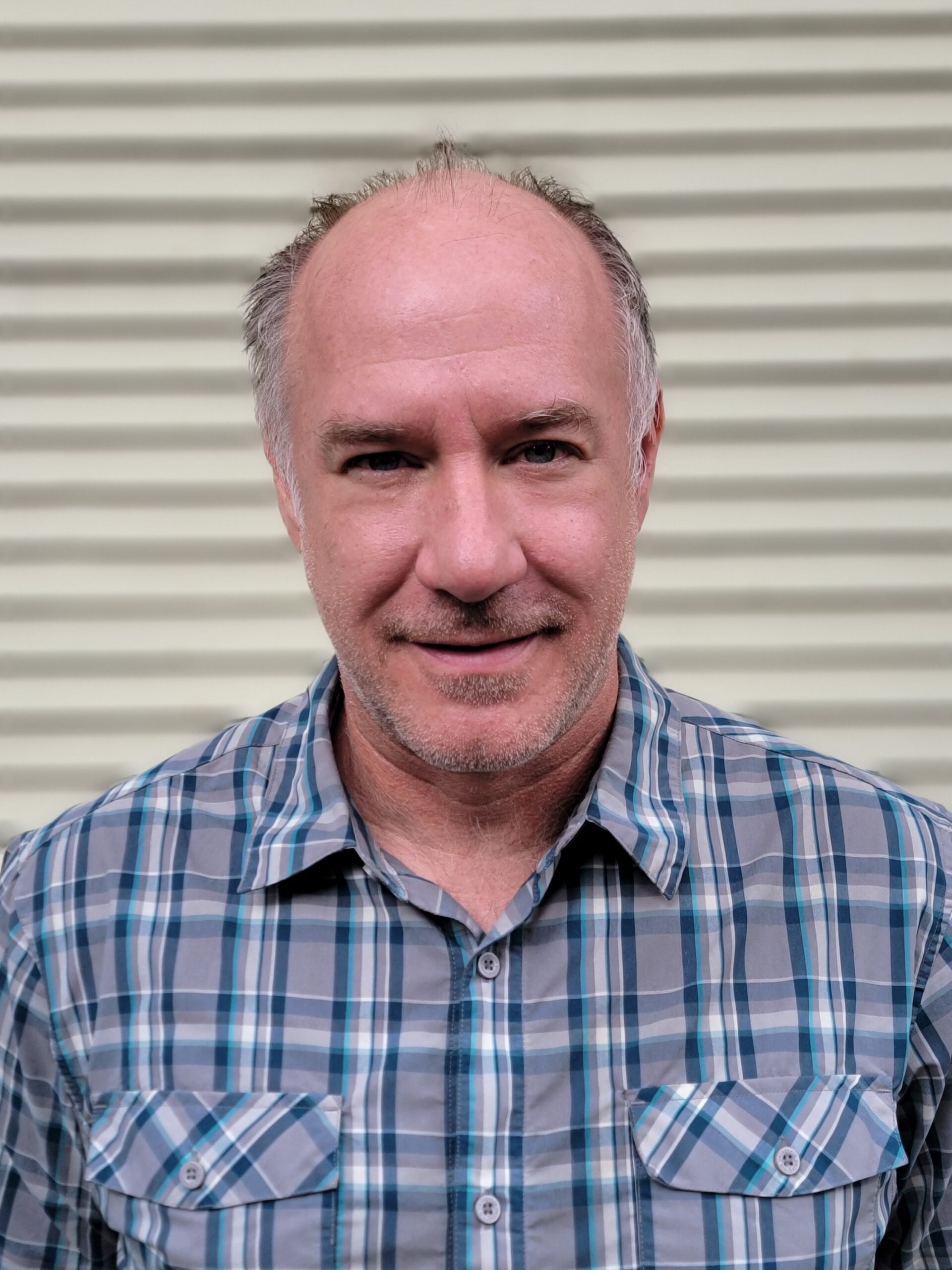Part two of a two-part networking event for ACT psychiatric care providers to connect with other providers across the country. Offered in collaboration with the Institute for Best Practices at the University of North Carolina.

This two-part networking event, occurring September 7th and September 14th, 12-1 pm Pacific, will bring together Assertive Community Treatment (ACT) psychiatric care providers, including psychiatrists, nurse practitioners, and other prescribers who work within ACT teams across the U.S. Co-facilitated by ACT psychiatrists and ACT experts, each meeting will include mutual sharing of strengths, challenges, resources, and next steps to help to further support ACT psychiatric care providers in the future.
 Dr. Steve Harker has been committed to the ACT model for almost 20 years in a variety of roles. Dr. Harker is an ACT psychiatrist based in St. Paul, Minnesota. He is a certified ACT Fidelity Reviewer and frequently conducts case consultations to PACT teams in Washington state. He also advises students in RADIAS' psychiatry residency program and conducts training in RADIAS' Training Institute.
Dr. Steve Harker has been committed to the ACT model for almost 20 years in a variety of roles. Dr. Harker is an ACT psychiatrist based in St. Paul, Minnesota. He is a certified ACT Fidelity Reviewer and frequently conducts case consultations to PACT teams in Washington state. He also advises students in RADIAS' psychiatry residency program and conducts training in RADIAS' Training Institute.
 Dr. Christopher Gross is a psychiatrist based in Seattle, WA where he works with the PACT team at the Downtown Emergency Service Center (DESC). Dr. Gross adopts a holistic approach to psychosis management considering genetics, environmental factors, and neurological processes contributing to the onset and progression of psychotic disorders. His passion lies in the prevention, diagnosis, and treatment of mental disorders, emphasizing a comprehensive understanding of his patients' well-being.
Dr. Christopher Gross is a psychiatrist based in Seattle, WA where he works with the PACT team at the Downtown Emergency Service Center (DESC). Dr. Gross adopts a holistic approach to psychosis management considering genetics, environmental factors, and neurological processes contributing to the onset and progression of psychotic disorders. His passion lies in the prevention, diagnosis, and treatment of mental disorders, emphasizing a comprehensive understanding of his patients' well-being.
Maria Monroe-DeVita, PhD
 Dr. Monroe-DeVita’s expertise is in implementation and services research related to evidence-based practices for adults with serious mental illness, particularly the Assertive Community Treatment (ACT) model. She has served as the Principal Investigator on several projects with the Washington State Division of Behavioral Health and Recovery, including the development, implementation, and fidelity assessment of 10 new ACT teams, and several Illness Management and Recovery (IMR) and Integrated Dual Disorder Treatment (IDDT) pilots across the state. She is also in the process of developing and testing novel approaches to better serving people with serious mental illness. She received a collaborative R34 grant from the National Institute of Mental Health (NIMH) to develop and pilot-test the integration of IMR within ACT teams and is working to better define and implement integrated primary care services within ACT. She is also the lead author of the new ACT fidelity tool – the Tool for Measurement of Assertive Community Treatment (TMACT) – which has been disseminated and pilot-tested in several U.S. states and countries. Dr. Monroe-DeVita is a core faculty member of the Northwest MHTTC and SPIRIT Lab at the University of Washington, which provides training, consultation, technical assistance, and fidelity assessment to agencies across the state to support sustainable implementation of EBPs that can substantially enhance the functional recovery of individuals living with serious mental illness.
Dr. Monroe-DeVita’s expertise is in implementation and services research related to evidence-based practices for adults with serious mental illness, particularly the Assertive Community Treatment (ACT) model. She has served as the Principal Investigator on several projects with the Washington State Division of Behavioral Health and Recovery, including the development, implementation, and fidelity assessment of 10 new ACT teams, and several Illness Management and Recovery (IMR) and Integrated Dual Disorder Treatment (IDDT) pilots across the state. She is also in the process of developing and testing novel approaches to better serving people with serious mental illness. She received a collaborative R34 grant from the National Institute of Mental Health (NIMH) to develop and pilot-test the integration of IMR within ACT teams and is working to better define and implement integrated primary care services within ACT. She is also the lead author of the new ACT fidelity tool – the Tool for Measurement of Assertive Community Treatment (TMACT) – which has been disseminated and pilot-tested in several U.S. states and countries. Dr. Monroe-DeVita is a core faculty member of the Northwest MHTTC and SPIRIT Lab at the University of Washington, which provides training, consultation, technical assistance, and fidelity assessment to agencies across the state to support sustainable implementation of EBPs that can substantially enhance the functional recovery of individuals living with serious mental illness.
 Dr. Lorna Moser is the director of the UNC ACT Technical Assistance Center in the UNC Department of Psychiatry’s Center for Excellence in Community Mental Health, and coordinator of the NC ACT Coalition, a grassroots organization of ACT providers. She is the co-author of the TMACT, and has evaluated and consulted with ACT teams across the United States and abroad. Dr. Moser graduated from Indiana University Purdue University’s Clinical Psychology program, with an emphasis in psychiatric rehabilitation. While there, she worked with the ACT Center of Indiana and as an implementation monitor for the SAMHSA-funded National Implementing Evidence-Based Practices Project. Her dissertation research on the use of restrictive practices within ACT has earned her national awards and she has worked in a wide range of clinical settings, including two ACT teams. Dr. Moser completed post-doctoral training in the Services Effectiveness Research Program in the Duke University Medical School Department of Psychiatry and Behavioral Sciences.
Dr. Lorna Moser is the director of the UNC ACT Technical Assistance Center in the UNC Department of Psychiatry’s Center for Excellence in Community Mental Health, and coordinator of the NC ACT Coalition, a grassroots organization of ACT providers. She is the co-author of the TMACT, and has evaluated and consulted with ACT teams across the United States and abroad. Dr. Moser graduated from Indiana University Purdue University’s Clinical Psychology program, with an emphasis in psychiatric rehabilitation. While there, she worked with the ACT Center of Indiana and as an implementation monitor for the SAMHSA-funded National Implementing Evidence-Based Practices Project. Her dissertation research on the use of restrictive practices within ACT has earned her national awards and she has worked in a wide range of clinical settings, including two ACT teams. Dr. Moser completed post-doctoral training in the Services Effectiveness Research Program in the Duke University Medical School Department of Psychiatry and Behavioral Sciences.